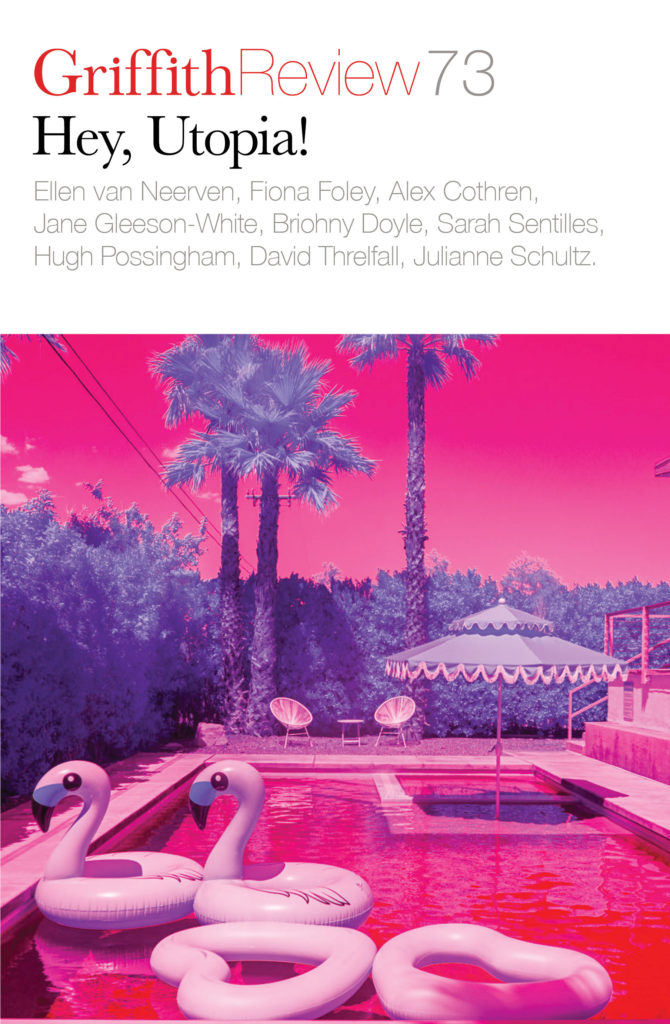Featured in

- Published 20210803
- ISBN: 978-1-922212-62-7
- Extent: 264pp
- Paperback (234 x 153mm), eBook

Already a subscriber? Sign in here
If you are an educator or student wishing to access content for study purposes please contact us at griffithreview@griffith.edu.au
Share article
About the author

Anna Yeatman
Anna Yeatman is an emeritus professor in the School of Humanities and Communication Arts at Western Sydney University as well as an adjunct professor...
More from this edition

Reframing the thought
experiment
IntroductionClick here to listen to Editor Ashley Hay read her introduction ‘Reframing the thought experiment’. IT WAS ONLY recently that I learnt about aphantasia, a condition in which...

Dystopian photo album
PoetryBuried in slough of immaculate lust We wave off the iron-man model Coughing up money and fake lottery tix Ipso facto zippers and guylines, Flysheets and groundsheets, door...

Life on JobKeeper
Memoir IN SEPTEMBER 2020, two months into Melbourne’s second lockdown, I was in my local park doing my allotted hour of physical activity when a pleasant...